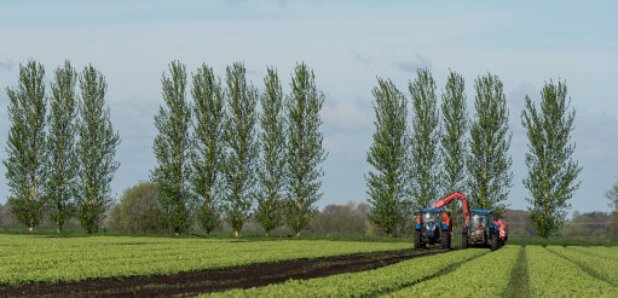On Air Now
Heart Breakfast with Des Clarke and Jennifer Reoch 6:30am - 10am
31 July 2019, 06:41 | Updated: 31 July 2019, 06:42

The UK Government should use Brexit as an opportunity to "rewrite the rules of agricultural funding", according to MPs.
In a report published by Westminster's Scottish Affairs Committee, MPs said leaving the EU presents a chance to address failings in the current formula.
The committee found the Common Agricultural Policy (CAP) has led to Scottish farms and crofts receiving low levels of funding.
It is now urging the UK Government to move away from what it calls an "outdated method" of allocating funding, which has "failed to reflect Scotland's unique agricultural conditions and practices".
Recommendations are made in the report to introduce a new system whereby a nation's proportion of less favoured land is key to determining how much funding it receives.
It suggests revising the formula would help to ensure farmers and crofters working in challenging conditions receive the most support.
The UK Government's pilot seasonal agriculture scheme was also criticised in the report for not providing enough workers to address Scotland's agricultural workforce crisis.
MPs called on the Government to increase the pilot to 10,000 workers and scrap application and visa interview fees to open the scheme to all motivated workers, not just those who can afford to apply.
Committee chairman Pete Wishart said: "Scotland has some of the most challenging farming environments in the UK and yet Scottish farming is the cornerstone of Scottish food and drink industry and farms and crofts remain central to many thriving communities.
"It is nonsensical that funding through the CAP has not recognised these challenging conditions so my committee is calling on the UK Government to take Brexit as an opportunity to rewrite the rules of agricultural funding.
"A country's environmental conditions and situation should be a central tenet of its funding settlement.
"If the UK Government accepts this principle, Scotland will be likely to receive a significantly greater proportion of funding, allowing the agricultural sector to realise its full potential."
Mr Wishart added: "The Government must also do much more to resolve the workforce crisis on Scottish farms.
"The seasonal workers pilot must be quadrupled in size if it has any chance of addressing this.
"The uncertainty surrounding no-deal tariffs and future of geographical indications must also be resolved so Scotland can be confident its agriculture sector will be protected and enhanced post-Brexit.
"My committee's report makes workable recommendations that the UK Government should implement to give Scottish farmers and crofters cause for optimism about the future of agriculture post-Brexit."
A UK Government spokesman said: "For years, British farmers have been given a poor deal by the EU's Common Agricultural Policy, which is why we want to change things for the better.
"As the Prime Minister has said, once we are out of the EU we will have a historic opportunity to introduce new schemes to support farmers - and we will make sure that Scotland gets a better deal.
"We will also shortly be publishing the recommendations from an independent review, led by Lord Bew, looking at how future funding can be fairly allocated outside the EU.
"This will take into account the unique farming environments in certain parts of the UK."
Scotland's Rural Affairs Minister Mairi Gougeon said the seasonal and temporary programmes proposed by the UK Government would "prohibit longer-term settlement" of migrants working in agriculture, and strengthened the case for Scotland to have the power to tailor its own migration policy.
Ms Gougeon said: "We have been clear that we are not opposed to UK-wide frameworks in principle, where they are in the interest of Scotland.
"However, this must be done with respect for devolution and via agreement, not imposition.
"A no-deal Brexit is by far the biggest threat to farming and to our food and drink sector.
"As I have repeatedly highlighted, Scotland's farmers would be worse off under every scenario when compared to current trade arrangements, which is why the Scottish Government has argued for a further extension of Article 50 to facilitate a second EU referendum."